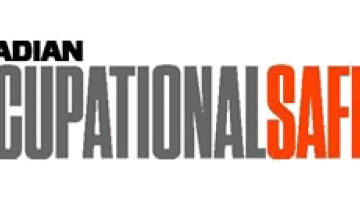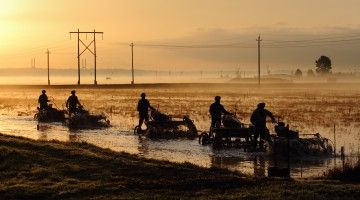Workers' compensation benefits
Workers' compensation is a form of insurance providing wage replacement and medical benefits to workers injured in the course of their employment. Eligibility for, and awarding of, benefits to injured workers are determined by workers’ compensation boards, which are funded through employer premiums. IWH research focuses on trends in workers’ compensation benefits, their adequacy and equity, and their effects on workers.
Featured

At Work article
IWH study finds 7 in 10 injured workers still experience pain more than a year after injury
A high proportion of injured workers in Ontario experience persistent pain for well over a year after their work-related injury. According to an IWH study of workers' compensation lost-time claimants, 70 per cent of workers experience pain 18 months after their work injury.
Published: September 30, 2022

At Work article
What research can do: IWH input contributes to enhancement of WSIB’s Health and Safety Index
When the WSIB reviewed its Health and Safety Index, IWH researchers provided advice on index methodology. An impact case study summarizes how enhancements to the index incorporated that advice.
Published: May 26, 2022

IWH in the media
Less than half of injured workers submit comp claims: Report
Less than half who reported missing two or more workdays as a result of an injury or disease submitted a claim to WorkSafeBC, according to a report from Institute for Work & Health. As Jim Wilson reports, just over half (53.7 per cent) did not submit a claim to WorkSafeBC and a quarter (26.7 per cent) reported that they received wage continuation from their employer or their workplace sick leave plan.
Published: Canadian Occupational Safety, December 2021

At Work article
Study probes factors behind poorer health, lower employment in injured workers’ post-claim experience
What are the work and health outcomes of injured workers after they no longer receive workers' compensation benefits or services? A study at IWH sets out to explore this little understood aspect of the post-injury experience.
Published: November 2021
IWH Speaker Series
IWH Speaker Series
Estimating the nature and extent of claim suppression in British Columbia's workers' compensation system
To what extent are workers in British Columbia pressured or induced to not report or claim benefits for their work-related injuries and illnesses? A study on the nature and extent of claim suppression in B.C. was recently conducted by Institute for Work & Health and Prism Economics and Analysis. In this presentation, study co-leads Dr. Ron Saunders and John O'Grady share what they found.
Published: September 2021
Journal article
Journal article
Cohort profile: the Ontario Life After Workplace Injury Study (OLAWIS)
Published: BMJ Open, September 2021

IWH in the media
Health researchers dig into B.C. injury claims
Are work injury claims in B.C. being suppressed, under-claimed or misrepresented? The Institute for Work and Health (IWH) recently collaborated with Prism Economics and Analysis to conduct a study to find out. They concluded the rate of claim suppression of work-related injury or disease in B.C. is in the range of 3.7 to 13 per cent. They also found that the incidence of claim suppression appears to be higher where the employer has created a bonus plan that rewards employees keep a workplace incident-free.
Published: Journal of Commerce, July 2021
Journal article
Journal article
Age differences in work-disability duration across Canada: examining variations by follow-up time and context
Published: Journal of Occupational Rehabilitation, June 2021
Project
Project
Ontario Life After Work Injury Study: Understanding the long-term recovery and labour market outcomes of injured workers in the shadow of COVID-19
Building on IWH's original Ontario Life After Work Injury Study (OLAWIS), IWH is looking in particular at the long-term outcomes of people who were recovering and returning to work during the early days of the COVID-19 pandemic.
Status: Ongoing

At Work article
Claim suppression study in B.C. finds under-claiming of work injury to be common
To what extent are injured workers in British Columbia discouraged from from reporting their lost-time work-related injuries or illnesses? An IWH research team was commissioned to find out the extent of claim suppression, and the circumstances that lead to suppressed claims.
Published: June 2021

Issue Briefing
Nature and extent of claim suppression in B.C.’s workers’ compensation system
The Institute for Work & Health collaborated with Prism Economics and Analysis to conduct a study for WorkSafeBC on claim suppression in British Columbia. This Issue Briefing summarizes the findings of this study and compares them with the findings of previous Institute studies on claim suppression in Manitoba and Ontario, as well as with the findings of other research in Canada.
Published: May 2021
Journal article
Journal article
The association between case manager interactions and serious mental illness following a physical workplace injury or illness: a cross-sectional analysis of workers' compensation claimants Ontario
Published: Journal of Occupational Rehabilitation, April 2021